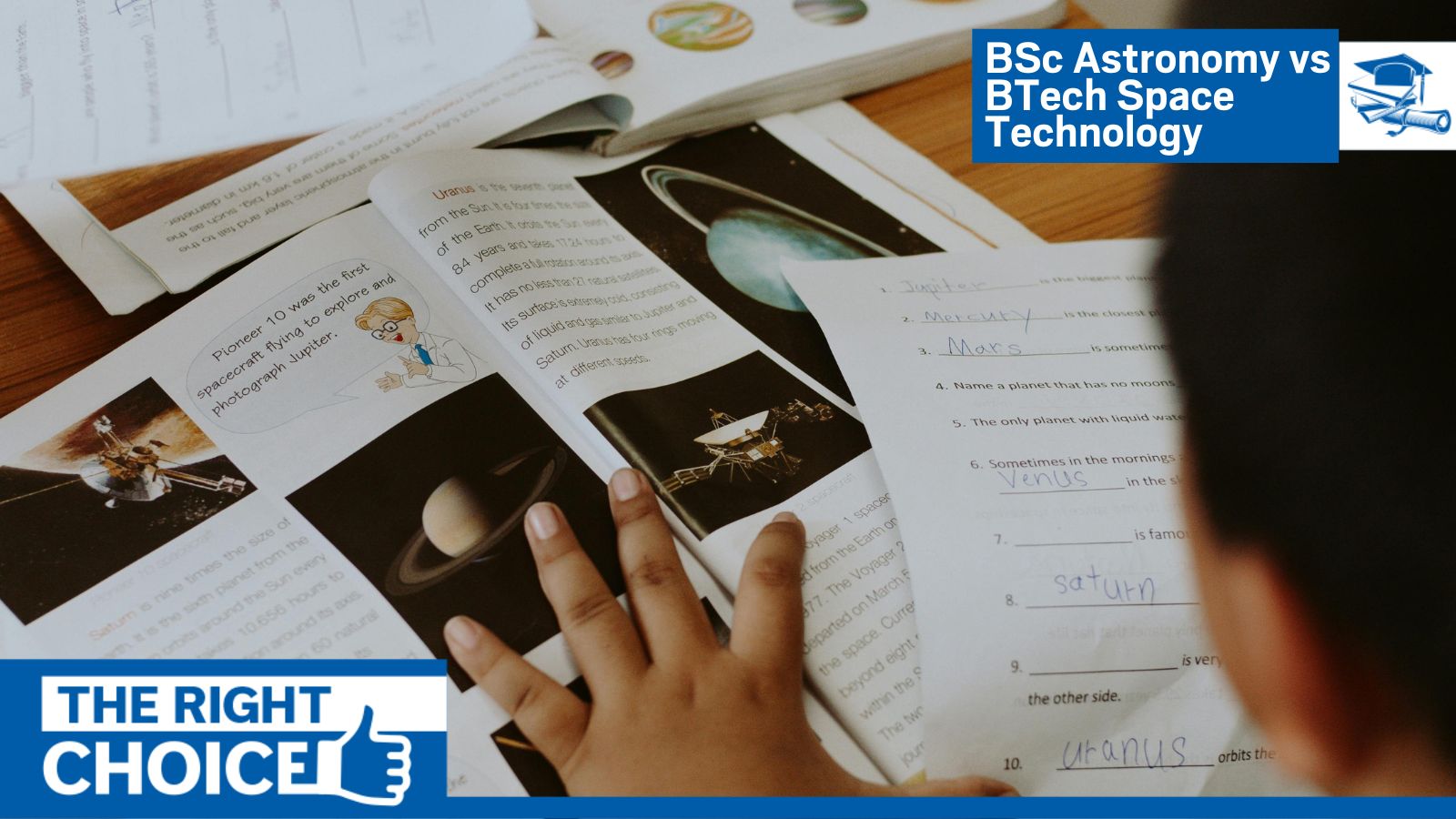Blast Off Your Career: BSc Astronomy vs. BTech Space Technology – Which Degree is Right for You?

Reaching for the Stars: Choosing Your Space Career Path
The allure of space exploration is stronger than ever. From ambitious lunar missions to the dream of establishing permanent off-world habitats, the space sector is booming. But with so many exciting roles, how do you choose the right educational path? Two popular degree options for aspiring space professionals are a BSc in Astronomy and a BTech in Space Technology. Let's break down the differences and help you decide which one aligns best with your ambitions.
BSc Astronomy: Unveiling the Cosmos
A BSc in Astronomy focuses on the fundamental science of the universe. You'll delve into topics like astrophysics, cosmology, planetary science, and stellar evolution. This degree equips you with a deep understanding of celestial objects, their properties, and the laws governing their behavior. Think of it as the theoretical backbone of space exploration.
Typical Coursework:
- Astrophysics
- Cosmology
- Stellar Physics
- Observational Astronomy
- Data Analysis & Statistical Methods
Career Prospects: Astronomers often find roles in research institutions, observatories, universities, and space agencies. You might be analyzing data from telescopes, developing new theories about the universe, or contributing to the search for exoplanets. While a direct 'space engineer' role is less common, a strong foundation in astronomy can be invaluable for understanding the environment and challenges of space.
BTech Space Technology: Building the Future of Space
A BTech in Space Technology is a more practically oriented degree, focusing on the engineering and technological aspects of space exploration. You'll learn about satellite design, spacecraft propulsion, robotics, space communications, and mission planning. This degree is all about building, designing, and operating the systems that make space travel possible.
Typical Coursework:
- Satellite Systems Engineering
- Spacecraft Propulsion
- Robotics and Automation
- Space Communications
- Mission Design and Analysis
Career Prospects: BTech graduates are in high demand within the space industry. Opportunities abound in satellite manufacturing, launch services, space operations, and research and development. You could be designing and building satellites, developing new propulsion systems, or working on the ground control for spacecraft.
The Wider Space Ecosystem: It's Not Just Engineers and Astronomers
It's crucial to remember that space exploration is a multidisciplinary field. As India, and indeed the world, moves towards establishing long-term space habitats, the need for diverse skillsets will only increase. Doctors, biotech engineers, life scientists, materials scientists, and even psychologists will all play critical roles. Think about the challenges of sustaining life in a closed environment, developing radiation shielding, or ensuring the psychological well-being of astronauts on long-duration missions.
India’s ambitions for long-term space habitats require thinkers, builders, healers, and dreamers alike. Whether you're passionate about understanding the universe or building the technology to explore it, there's a place for you in the exciting world of space!
So, Which Degree Should You Choose?
Ultimately, the best degree depends on your interests and career goals. If you're fascinated by the cosmos and enjoy theoretical problem-solving, a BSc in Astronomy might be the perfect fit. If you're more hands-on and enjoy building and designing things, a BTech in Space Technology could be your launchpad to a rewarding career. Consider your strengths, research the curriculum of different programs, and talk to professionals in the field to make an informed decision.






